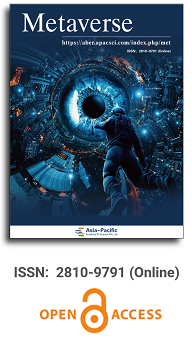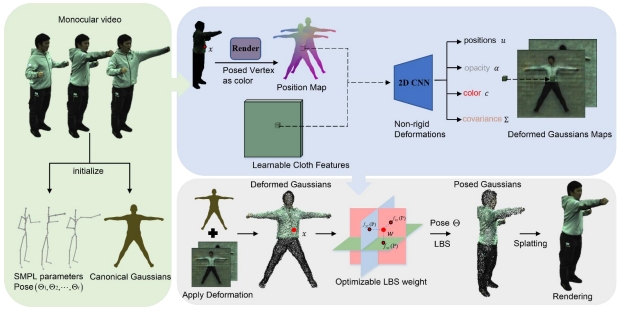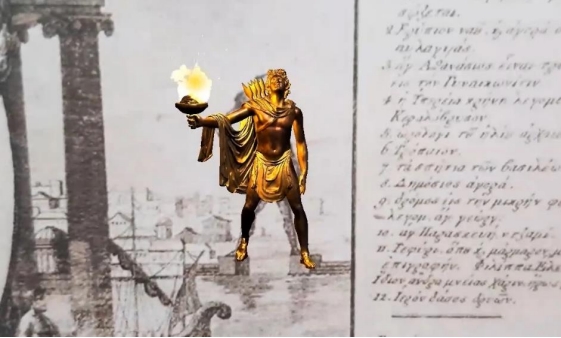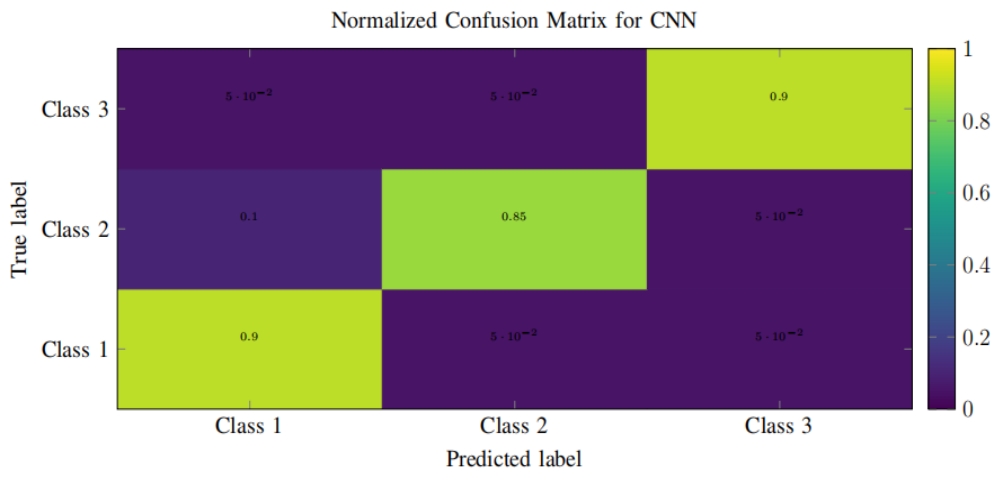
Asia Pacific Academy of Science Pte. Ltd. (APACSCI) specializes in international journal publishing. APACSCI adopts the open access publishing model and provides an important communication bridge for academic groups whose interest fields include engineering, technology, medicine, computer, mathematics, agriculture and forestry, and environment.



Virtual reality as a tool for fundamental and vocational education
Vol 2, Issue 1, 2021
Download PDF
Abstract
This article is a contribution to the research on the implementation of virtual reality as a tool for teaching and learning processes, especially in the field of fundamental and professional education. For this purpose, virtual reality is analyzed as an alternative to ensure the quality of the educational process, which is particularly urgent given the current situation of physical distancing due to the pandemic. This research investigates already published works whose contributions can be considered adaptive, which have been developed and applied in fundamental and professional education environments, and which have successfully demonstrated effective results in the educational process. As a conclusion, the potential of virtual reality as an educational tool is clear for all to see, although it is not always the most appropriate, so its use must be carefully evaluated and defined.
Keywords
References
- Michaelis C, Michaelis H. Dicionário brasileiro da língua portuguesa (Portuguese) Brazilian dictionary of the Portuguese language [Internet]. Brazil: Editora Melhoramentos Ltda; 2020. Available from: https://michaelis.uol.com.br/moderno-portugues/
- Tori R, Hounsell MDS, Kirner C. Realidade virtual (Spanish) [Virtual reality]. Introdução a Realidade Virtual e Aumentada. Brazil: Editora SBC; 2018. p. 9–25.
- Sherman WR, Craig AB. Understanding virtual reality: Interface, application, and design. Amsterdam: Elsevier Science; 2003.
- Tori R, Kirner C, Siscoutto RA. Fundamentos e tecnologia de realidade virtual e aumentada (Portuguese) [Virtual and augmented reality fundamentals and technology]. Brazil: Editora SBC; 2006.
- Cardoso A, Kirner C, Júnior EL, et al. Tecnologias e ferramentas para o desenvolvimento de sistemas de realidade virtual e aumentada (Portuguese) [Technologies and tools for the development of virtual and augmented reality systems]. Tecnologias para o desenvolvimento de sistemas de realidade virtual e aumentada. Brazil: Editora Universitária UFPE; 2007. p. 1–19.
- Liu D, Dede C, Huang R, et al. (editors). Virtual, augmented, and mixed realities in education. Germany: Springer; 2017.
- Ancioto ASR, Mashi LF, Guimarães MP. Simulator for teaching magnetic disk scheduling algorithms. 20th Symposium on Virtual and Augmented Reality (SVR); 2018 Oct 28–30; Foz do Iguaçu. USA: IEEE; 2018.
- Rodovalho RM, Moraes REG. Computação ubíqua e IHC (Portuguese) [Ubiquitous Computing and HCI]. Rio das Ostras, Brazil: Universidade Federal Fluminense; 2017.
- Araújo RB. Computação ubíqua: Princípios, tecnologias e desafios (Portuguese) [Ubiquitous computing: Principles, technologies and challenges]. En XXI Simpósio Brasileiro de Redes de Computadores. Brasil: Universidade Federal de S. Carlos; 2003. p. 45–115.
- Torudd J, Olsson M. Safety shortcomings within a sawmill facility: How can virtual reality simulators and RFID potentially decrease the most common identified causes? [Internet]. Kalmar: Linnaeus University; 2019 [updated 2019 Jul 29]. Available from: https://bit.ly/3pAQJii
- Rolland JP, Hua H. Head-mounted display systems. Chongqing: Computer Science; 2005.
- Woletz J. Interfaces of immersive media. Interface Critique Journal 2018; 1: 96–110.
- Clark F. Virtual reality. GeoInformatics 2015; 18(7): 28–29.
- Lamb P. ARToolKit [Internet]. 2003. Available from: www.hitl.washington.edu/artoolkit/
- Instituto Brasileiro de Geografia e Estatística (IBGE) [Internet]. Uso de internet, televisão e celular no Brasil. IGBEeduca; 2018. Available from: https://bit.ly/3hpv49R
- Ministério da Educação. Dispõe sobre a substituição das aulas presenciais por aulas em meios digitais enquanto durar a situação de pandemia do novo coronavírus-COVID-19 (Portuguese) [Provides for the replacement of classroom lessons with digital media lessons for the duration of the New Coronavirus-COVID-19 pandemic situation]. Diário Oficial da União 2020; 53(1): 39.
- Silva RRS. Diferenças entre ferramentas síncronas e assíncronas no EAD [Internet]. Eadbox. [updated 2018 Feb 8]. Available from: https://bit.ly/37Y4Jg4
- Dellagnelo L. O coronavírus e a educação online (Portuguese) [Coronavirus and online education] [Interent]. 2020 [updated 2020 Mar 11]. Porvir. Inovações em Educação. Available from: https://porvir.org/o-coronavirus-e-a-educacao-online/
- Moreira JA, Schlemmer E. Por um novo conceito e paradigma de educação digital on life (Portuguese) [For a new concept and paradigm of on life digital education]. Revista UFG 2020; 20(26).
- Meiguins BS, Behrens FH, Meiguins BS, et al. Tecnologia de realidade virtual para o auxílio no aprendizado em sala de aula para circuitos elétricos (Portuguese) [Virtual reality technology to aid classroom learning for electrical circuits] [Interent]. In: VI Workshop de Informática na Escola (WIE); 2000. Available from: https://bit.ly/3o04Ahs
- Nemer EG, Ramirez RA, Frohmut BD, et al. Um estudo de caso sobre o uso de gamificação e da realidade virtual na educação professional (Portuguese) [A case study on the use of gamification and virtual reality in professional education]. Refas 2020; 6(5).
- Freitas LF. SigemVR: Um simulador imersivo e interativo de gerência de memória (Portuguese) [SigemVR: An immersive and interactive memory management simulator] [Master’s thesis]. Brazil: Centro Universitário Campo Limpo Paulista, UNIFACCAMP; 2018.
- Scamati V. Um simulador para o ensino de sistemas, operacionais com a tecnologia da realidade virtual (ESORV) (Portuguese) [A simulator for the teaching of systems, operational with virtual reality technology (ESORV)] [Master’s thesis]. Brazil: Campo Limpo Paulista, SP; 2017.
- Santos AD. Simulação baseada em realidade virtual para ensino e treinamento em ginecologia (Portuguese) [Virtual reality-based simulation for gynecology teaching and training] [Master’s thesis]. Brazil: Universidade Federal da Paraíba; 2010.
- Roussou M. A VR playground for learning abstract mathematics concepts. Computer Graphics and Applications 2009; 29(1): 82–85.
- Lei 9394 [Internet]. 1996 Dec 20. Lei de diretrizes e bases da educação nacional (Portuguese) [Law of guidelines and bases of national education]. (Presidência da República, Brasil). Available from: https://bit.ly/3aQ01mj
- Basile FRM, Ramírez LJ. Digital defense training strategy for adolescents: A proposal at the Federal Institute of São Paulo. Revista Científica General José María Córdova 2020; 18(31): 271–287.
- Morán J. Mudando a educação com metodologias ativas. Convergências midiáticas, educação e cidadania: Aproximações jovens (Portuguese) [Changing education with active methodologies. Media convergences, education and citizenship: Young approaches]. Coleção Mídias Contemporâneas 2015; 2(1): 15–33.
- Boruchovitch E, Martini ML. As atribuições de causalidade para o sucesso e o fracasso escolar e a motivação para a aprendizagem de crianças brasileiras (Portuguese) [Causality attributions for school success and failure and the motivation for learning in Brazilian children]. Arquivos Brasileiros de Psicologia 1997; 49(3): 59–71.
- Lourenço AA, Paiva MOA. Motivation and school learning process. Ciências & Cognição 2010; 15(2): 132–141.
- Fardo ML. Gamification applied to learning environments. Revista Novas Tecnologias na Educação 2013; 11(1).
- Pereira AR, Peruzza AP. Tecnologia de realidade virtual aplicada à educação pré escolar (Portuguese) [Virtual reality technology applied to pre-school education]. In: XIII Simpósio Brasileiro de Informática na Educação. Brazil: Unisinos; 2002. p. 385–391.
- Basile FRM, Marioto RR, Martins THB. Inclusão digital para terceira idade na comunidade de Pirituba-SP. Experiência de implementação de curso livre de extensão (Portuguese) [Digital inclusion for senior citizens in the community of Pirituba-SP. Experience with the implementation of a free extension course]. In: Emerson F, Verona JA, Soares S (editors). Educação profissional e tecnológica—Extensão e cultura. Brazil: Paco; 2018. p. 145–164.
- Marioto RR, Basile FRM. Teaching writing for the elderly using digital technologies: Experience report. Revista Internacional de Formação de Professores 2020; 5: 1–19.
Supporting Agencies
Copyright (c) 2021 Sousa Ferreira Regivaldo, Campanari Xavier Rogério Aparecido, Rodrigues Ancioto Alex Sandro

This work is licensed under a Creative Commons Attribution 4.0 International License.

This site is licensed under a Creative Commons Attribution 4.0 International License (CC BY 4.0).

Prof. Zhigeng Pan
Professor, Hangzhou International Innovation Institute (H3I), Beihang University, China

Prof. Jianrong Tan
Academician, Chinese Academy of Engineering, China
Conference Time
December 15-18, 2025
Conference Venue
Hong Kong Convention and Exhibition Center (HKCEC)
...
Metaverse Scientist Forum No.3 was successfully held on April 22, 2025, from 19:00 to 20:30 (Beijing Time)...
We received the Scopus notification on April 19th, confirming that the journal has been successfully indexed by Scopus...
We are pleased to announce that we have updated the requirements for manuscript figures in the submission guidelines. Manuscripts submitted after April 15, 2025 are required to strictly adhere to the change. These updates are aimed at ensuring the highest quality of visual content in our publications and enhancing the overall readability and impact of your research. For more details, please find it in sumissions...






.jpg)
.jpg)

